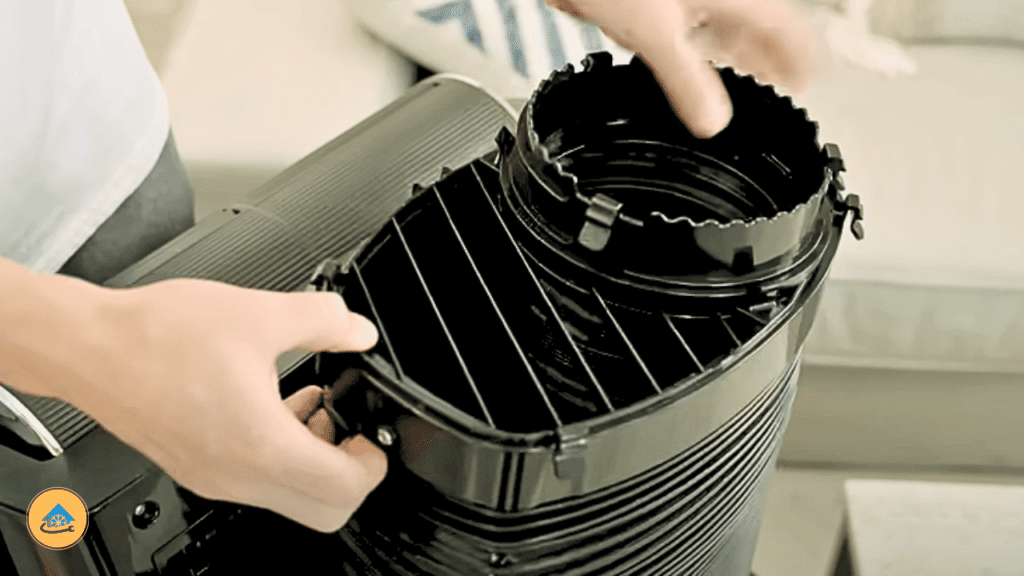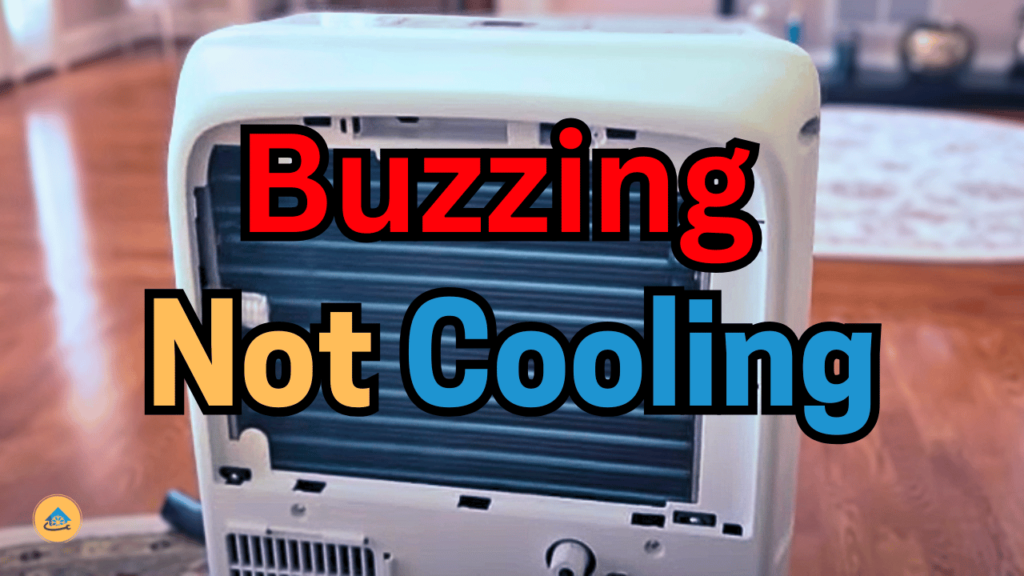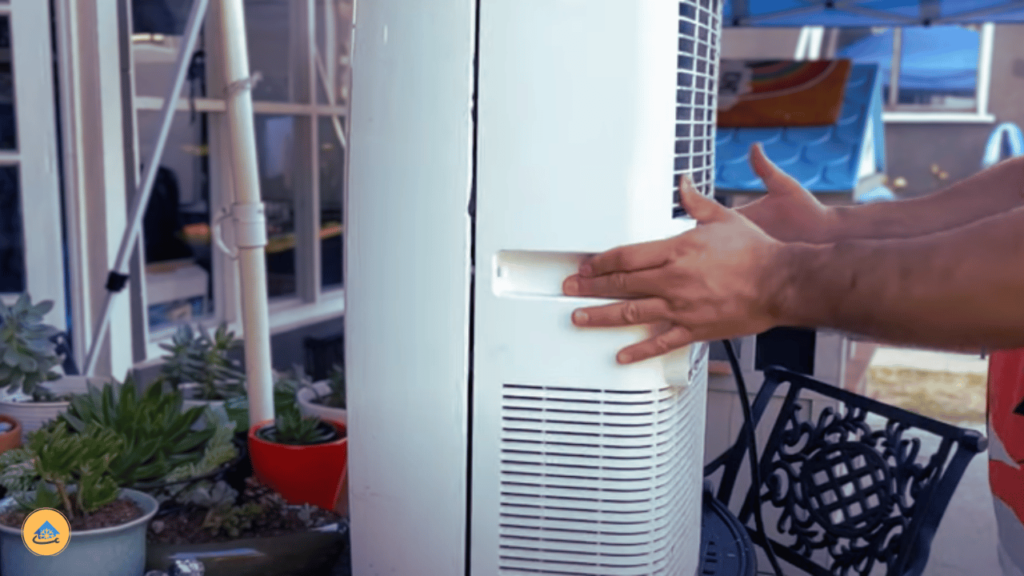Portable air conditioners are popular for cooling small spaces. They offer flexibility and ease of use.
Yet, like any appliance, they come with their own set of issues. Understanding these common problems can save you time and frustration. Many of these issues are simple to fix and do not require professional help. In this blog post, we will explore some frequent problems with portable air conditioners.
You’ll learn how to identify these issues and find quick solutions. By knowing what to expect, you can keep your portable air conditioner running smoothly. Stay cool and informed as you read on to discover how to tackle these common problems.

Introduction To Portable Air Conditioners
Portable air conditioners can sometimes face common problems like water leakage or not cooling properly. Simple maintenance and troubleshooting can often resolve these issues quickly. Understanding these common problems helps in ensuring smooth operation.
Portable air conditioners are convenient and flexible cooling solutions. They offer relief in hot weather. Unlike central air systems, they don’t need permanent installation. These units can be moved from room to room. This makes them ideal for renters or for cooling specific areas.
Benefits Of Portable Acs
Portable ACs provide several benefits. They are easy to install. All you need is a window and a power outlet. No professionals are required. These units are cost-effective. They save money compared to central air systems. You only cool the spaces you use.
Portable ACs are also versatile. They can be used in different rooms. Move them to the bedroom at night. Place them in the living room during the day. They also improve air quality. Many models come with filters that remove dust and allergens.
Common Uses
Portable air conditioners are useful in many situations. They are perfect for small apartments. Cool your living space without complex installation. They are also great for home offices. Stay comfortable while you work.
These units are handy in dorm rooms. Students can enjoy a cooler environment. Portable ACs are also useful in temporary spaces. Cool your garage during a summer project. Use them in vacation homes. Enjoy a cool retreat without a permanent system.
Portable air conditioners offer practical and flexible cooling options. They are easy to use, cost-effective, and versatile. Perfect for many living situations.
Ac Not Cooling Properly
Is your portable air conditioner not cooling properly? This common issue can be frustrating, especially during hot weather. Several factors can cause this problem. Let’s explore some solutions to help you get your AC working efficiently again.
Check The Thermostat
First, ensure the thermostat is set to the correct temperature. Sometimes, an incorrect setting can prevent the AC from cooling effectively. Set it to a lower temperature than the current room temperature. Wait a few minutes to see if the AC starts cooling.
Clean The Air Filter
A dirty air filter can block airflow, reducing the AC’s cooling efficiency. Check the air filter regularly and clean it if it’s dirty. Remove the filter and wash it with warm water and mild soap. Allow it to dry completely before reinstalling it. A clean filter ensures better airflow and cooling performance.
Unit Not Turning On
Portable air conditioners are a lifesaver during hot summer days. But sometimes, they can face issues. One common problem is the unit not turning on. This can be frustrating, especially when you need it the most.
Power Supply Issues
First, check if the unit is plugged in. It might seem simple, but it’s often overlooked. Ensure the power cord is securely connected to the outlet. If the outlet is not working, try plugging in another device to test it. If the outlet works, inspect the power cord for any visible damage. A damaged cord can prevent the unit from turning on.
Faulty Control Panel
The control panel is the brain of your portable air conditioner. If it’s faulty, the unit won’t turn on. Check if the display lights up. If not, the control panel might be defective. Sometimes, a simple reset can fix it. Unplug the unit, wait a few minutes, and plug it back in. If the problem persists, the control panel might need replacement. Consult a professional for assistance.
Excessive Noise
Portable air conditioners can sometimes create excessive noise. This can disrupt your peace and quiet. It is a common problem that many users face. The noise often comes from internal parts. Addressing this can improve your AC’s performance and lifespan.
Inspect Fan Blades
Fan blades are a frequent source of noise. Check them for dirt and debris. Clean them carefully to avoid damage. Also, look for any bends or cracks. Damaged blades can hit other parts and make noise. If they are damaged, replace them immediately.
Check For Loose Parts
Loose parts can create rattling sounds. Inspect screws, bolts, and nuts. Tighten any that are loose. Also, check the panels and grills. Ensure they are secure. Loose panels can vibrate and cause noise. Regularly checking for loose parts can prevent noise issues.
Water Leaks
Portable air conditioners are convenient for cooling small spaces. Yet, they can sometimes face issues like water leaks. Water leaks can cause damage and reduce efficiency. Understanding common causes can help you fix them quickly.
Drainage Problems
One common cause of water leaks is drainage problems. Portable air conditioners remove moisture from the air. This moisture collects in a tank or drains through a hose. If the tank is full or the hose is blocked, water can leak.
Check the water tank regularly. Empty it before it gets too full. Ensure the drain hose is not kinked or blocked. A clear path for water drainage is crucial to prevent leaks.
Clogged Condensate Line
A clogged condensate line can also lead to water leaks. The condensate line carries water from the unit to the drain. Dust, dirt, and debris can clog this line.
Regular maintenance helps prevent clogs. Clean the condensate line periodically. Use a brush or a vacuum to remove debris. Keeping this line clear ensures proper water drainage.

Poor Airflow
Poor airflow is a common problem in portable air conditioners. It affects cooling efficiency and comfort. Identifying the cause of poor airflow is crucial. Let’s explore some common reasons for this issue.
Blocked Vents
Blocked vents are a frequent cause of poor airflow. Check the air intake and output vents. Ensure they are free from obstructions. Furniture, curtains, or other objects can block these vents. Clear the area around the unit for better airflow.
Dirty Evaporator Coils
Dirty evaporator coils can also reduce airflow. Dust and dirt accumulate on the coils. This buildup restricts air movement. Regularly clean the coils to maintain optimal performance. Use a soft brush or a vacuum with a brush attachment.
Unpleasant Odors
Portable air conditioners are excellent for keeping your space cool. But, they can sometimes emit unpleasant odors. These smells can be bothersome. Understanding the causes can help you fix them. Let’s explore two common reasons for these odors.
Mold And Mildew
Mold and mildew thrive in damp environments. Portable air conditioners can create such conditions. If you notice a musty smell, mold might be the culprit. Mold grows in the unit’s water collection area. It can spread quickly and cause health issues. Regular checks can help you spot mold early.
Cleaning The Unit
Regular cleaning is crucial to keep your portable air conditioner odor-free. Here are some steps to follow:
- Turn off and unplug the unit.
- Remove and clean the filters with warm water and mild soap.
- Check the water collection area. Empty and clean it.
- Wipe down the exterior with a damp cloth.
- Reassemble and plug in the unit.
Cleaning the unit once a month can prevent odors. It also helps the unit run efficiently.

Frozen Evaporator Coils
Frozen evaporator coils often cause portable air conditioners to stop cooling effectively. They restrict airflow and reduce efficiency. Regular maintenance can prevent this common issue.
Portable air conditioners can develop issues over time. One common problem is frozen evaporator coils. This can affect the cooling efficiency. Let’s explore the reasons behind frozen coils.
Low Refrigerant Levels
Low refrigerant levels can cause the evaporator coils to freeze. Refrigerant helps cool the air. Without enough refrigerant, the coils get too cold. This leads to ice formation. Check the refrigerant levels if you notice ice on the coils.
Restricted Airflow
Restricted airflow is another cause of frozen evaporator coils. Blocked vents or dirty filters can limit airflow. This makes the coils too cold and causes ice to form. Ensure vents are clear. Replace or clean filters regularly to prevent this issue.
Frequently Asked Questions
Why Is My Portable Air Conditioner Not Cooling?
A portable air conditioner may not cool if the filter is dirty. Clean or replace it. Ensure all doors and windows are closed. Check for blockages in the exhaust hose.
How Often Should I Clean My Portable Ac Filter?
Clean the filter of your portable air conditioner every two weeks. A clean filter ensures efficient cooling and prolongs the unit’s lifespan.
Why Is My Portable Ac Making Noise?
A noisy portable air conditioner may have loose parts or debris inside. Inspect and tighten any loose screws. Clean the unit to remove debris.
How Do I Prevent Water Leakage In My Portable Ac?
Prevent water leakage by emptying the water tank regularly. Ensure the unit is level and check the drainage system for clogs.
Conclusion
Portable air conditioners can have common issues. They might leak water, struggle to cool, or make noise. Regular maintenance can help prevent these problems. Check filters and vents often. Ensure proper drainage to avoid leaks. Keep your unit in top shape for better performance.

Leave a Reply